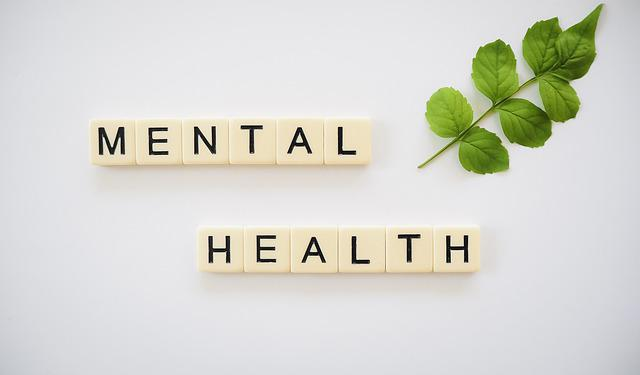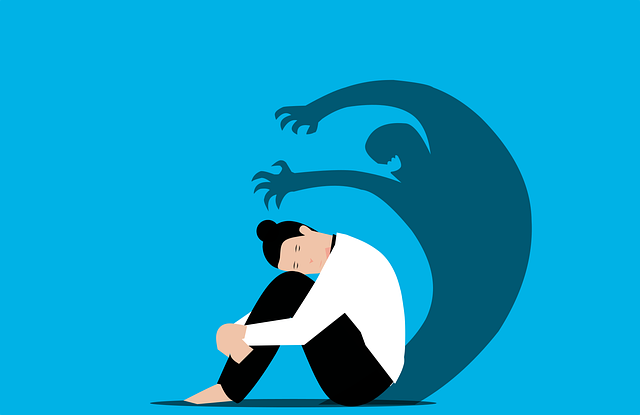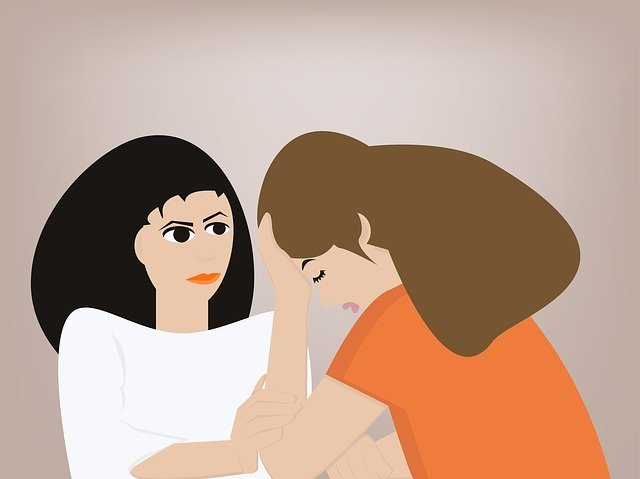Mental Healing & Mental Healers
Introduction to Mental Healing & Mental Healers
Summary:
Mental healing is a holistic approach to improving mental and emotional well-being. The term mental healing itself is a subjective one and means different things to different people. For some, it may be a spiritual practice that helps them achieve oneness with the universe through meditation, while others might find comfort in more conventional practices such as engaging in yoga postures or breathing exercises. One way of looking at the term ‘mental healing’ is that it describes any practice which helps to bring about balance between our mind and body, thereby contributing overall well-being.
Mental healing can involve techniques such as meditation, visualization, cognitive behavioral therapy, and journaling. These techniques help to calm the mind and body, reduce stress and anxiety, and cultivate positive emotions like gratitude and compassion.
Some of the many benefits of mental healing include increased focus, more positive thinking and greater overall well-being. Additionally, it can help to reduce symptoms associated with stress, depression, anxiety, and other mental health conditions.
There are many techniques that can be used in the practice of mental healing, including mindfulness meditation, guided imagery, and breathing exercises. These techniques can help to improve overall mental health and well-being, as well as reduce symptoms of stress, anxiety, and other conditions.
Whether you are looking for new ways to improve your mental and emotional health, or are seeking relief from stress and other symptoms of mental illnesses, mental healing can help. If you are interested in incorporating these techniques into your own practice, start by researching the many different methods available and finding which ones work best for you. With time, patience, and dedication, you can reap the many rewards that mental healing has to offer.
When Do You Need Emotional Healing?
If you are struggling with feelings of sadness, anxiety, stress, or other emotional difficulties, then you may benefit from emotional healing. This can involve using techniques such as meditation, yoga, and counseling to help calm your mind and promote positive emotions.
Emotional healing can be an important part of overall wellness. By learning how to manage negative thoughts and cultivate positive feelings like gratitude and compassion, you can begin to heal your mind and improve your overall well-being. Whether you are experiencing symptoms of mental illness or simply looking for ways to reduce stress and increase happiness in your life, engaging in some form of emotional healing is a great place to start. With time, patience, and dedication, you can experience all the many benefits that come with emotional healing.

Mental Healing Techniques:
There are many different approaches to mental healing, but here are some popular ones:
1. Meditation
– Regularly practicing meditation can help you relax your mind and reduce stress levels by focusing your attention on an object of concentration such as your breath or a mantra.
2. Yoga
– The physical and breathing exercises involved in yoga help to calm the mind while also providing a workout for the body.
3. Tai chi
– Tai chi is another form of exercise which involves slow, graceful movements and deep breathing. It is said to be helpful in reducing stress, improving balance and coordination, and increasing flexibility.
4. aromatherapy
– Aromatherapy uses essential oils to promote relaxation and well-being. Different oils can be used for different purposes, such as lavender to help you sleep or peppermint to boost your energy levels.
5. Counseling
– Talking to a counselor or therapist can be beneficial if you’re struggling with mental health issues such as anxiety or depression. Counseling can help you understand your thoughts and feelings, and develop healthy coping mechanisms.
There are many different techniques that can be useful in mental healing, but it’s important to find the ones that work best for you. Experiment with different techniques and give yourself time to find what brings you peace of mind and helps you achieve balance in your life. With time, patience, and dedication, you can experience all the many benefits that come with mental healing.

Questions to Ask Yourself Before Healing:
1. What are my main sources of stress or emotional distress?
2. Are there any specific symptoms that I am experiencing, such as depression, anxiety, or insomnia?
3. How do I typically cope with stress and negative emotions in my life? Do these coping mechanisms work for me, or do they just make things worse?
4. Am I looking for relief from a specific mental illness or condition, or simply seeking ways to improve my general well-being and reduce the impact of stress on my life?
5. What types of healing practices appeal most to me—such as meditation, yoga, counseling, aromatherapy, etc.? Do I need to try multiple approaches in order to find what works best for me, or do I have a specific technique in mind that I would like to focus on?
6. How much time and effort am I willing to commit to emotional healing? Keep in mind that change takes time, so be patient with yourself and don’t expect overnight results.
7. What are my goals for emotional healing? What do I hope to achieve through this process?
By asking yourself these questions, you can begin to develop a plan for emotional healing that is tailored specifically to your needs. Remember that there is no “right” way to heal—the most important thing is finding what works best for you and committing to the process. With time, patience, and dedication, you can experience all the many benefits that come with emotional healing.
Tips for You As You Heal:
1. Prioritize self-care. Make a point of taking care of yourself on a daily basis, whether that means setting aside time for regular exercise or massage, cooking healthy meals, getting enough sleep, and so on. Self-care is an important part of emotional healing and will help you feel more balanced and empowered as you go through the process.
2. Surround yourself with positive people who support your efforts to heal emotionally. This can include friends, family members, counselors or therapists, spiritual leaders, or anyone else who encourages you to take care of yourself and make positive changes in your life.
3. Stay mindful of your thoughts and feelings throughout the healing process. Pay attention to what triggers negative moods or emotions, and make a note of any situations, people, or events that cause you to spiral out of control.
4. Start journaling about your experiences in order to build awareness and understanding around what’s going on inside your mind and body. Recording your thoughts can help you gain insight into the root causes of your emotional distress.
5. Seek assistance from professionals if necessary, such as counseling services or nutritional consultants who can provide guidance on improving mental health and well-being through diet and lifestyle changes. Keep in mind that professional support is not a substitute for self-care—rather it is an important part of the healing process in developing healthy habits and learning how to manage stress more effectively.

Journaling Prompts:
1. What are my overall feelings about emotional healing? Am I hopeful or skeptical about the process? Why?
2. What emotions or memories come up for me when I think about my past experiences with stress, trauma, or pain?
3. What do I need to do in order to feel more emotionally balanced and healthy?
4. Who can I turn to for support during the healing process? How can they help me?
5. What are some of the biggest challenges that I face in terms of emotional healing? How can I overcome these obstacles?
6. What are my goals for emotional healing? What do I hope to achieve through this process?
7. How will I know when I’m healed? What will be different in my life, and how will this change make me feel?
Seeking Mental Healers:
If you are dealing with mental health challenges such as depression or anxiety, it can be helpful to find a mental healer who specializes in these areas. This person can help provide guidance and support as you work towards healing your emotional health. A therapist or counselor may prescribe medication if needed, or offer alternative treatment options such as talk therapy, biofeedback, or neurofeedback. If you’re not sure where to start, ask your primary care doctor for a referral to a mental health professional in your area.
EMPOWER YOURSELF THROUGH WELLNESS AND SELF-CARE
Self-care is a vital part of emotional healing. When you take the time to nourish your body, mind, and spirit on a regular basis, you become more empowered to address any issues that may arise as you go through life. By developing healthy habits and learning how to establish healthier boundaries with yourself and others, you can take responsibility for your well-being as well as manage stress more effectively. From making nutritious food choices that fuel your body to finding ways to reduce anxiety and tension through exercise or meditation, there are many different ways to incorporate self-care into your life.
The following tips and journaling prompts will help you explore the role of self-care in emotional healing, as well as identify some simple steps that you can take to nurture yourself on a regular basis. Remember that the most important thing is to find what works best for you and make self-care a priority in your life. With time and practice, you can develop healthy habits that will enable you to feel more balanced, grounded, and empowered as you heal emotionally.

Tips for Self-Care:
1. Get enough sleep. Sleep is essential in helping your body and mind recover from the stress and tension of daily life, so be sure to get at least seven to eight hours of sleep per night. Take steps to ensure that you won’t be disturbed while you’re asleep (such as turning off cell phones or avoiding a partner who snores), and keep your bedtime routine consistent by going to bed at the same hour each evening.
2. Eat a balanced diet filled with nutritious foods that your body needs (including fruits, vegetables, whole grains, lean protein, nuts, and seeds). Regularly incorporating healthy food into your life will help promote healing mentally and physically. Avoid consuming high amounts of caffeine, alcohol, or sugary foods and drinks, since these substances can trigger negative emotions and increase your overall stress levels.
3. Practice regular exercise to release tension from the body and mind. Exercise also releases endorphins that promote feelings of happiness and can interrupt anxious thoughts and worries. Choose an activity that you enjoy doing (such as yoga or walking), so that you are more likely to stay motivated to get active on a daily basis. Be sure to check with your doctor before starting any new fitness routine, particularly if you have medical issues or concerns such as diabetes or heart disease; some exercises may not be suitable for everyone’s health needs.
4. Set realistic boundaries with others in order to avoid feeling overwhelmed or taken advantage of. If you tend to put the needs of others before your own, it can be helpful to learn how to say “no” in order to protect your time and energy. Don’t be afraid to set limits in your relationships, both personal and professional, in order to make sure that you aren’t being taken advantage of.
5. Take breaks throughout the day, even if they are just five minutes long. Step away from your work or other obligations in order to take some time for yourself. Use this time to do something that you enjoy, such as reading a book, listening to music, or taking a walk outdoors.
6. Make time for activities that bring you joy. Whether it’s your favorite hobby, volunteering for a cause that you care about, spending time with loved ones or pets, or simply enjoying some quiet time to yourself, find ways to nurture yourself daily in order to experience more positive emotions.

Health Benefits of Emotional Healing:
There are many health benefits of emotional healing, including improved mental and physical health, greater resilience to stress and anxiety, and increased self-esteem and self-confidence. When we take steps to care for our emotional wellbeing, we become better able to manage the challenges that life throws at us, making it easier to cope with difficult emotions in a healthy way. Additionally, nurturing ourselves through self-care practices can help us feel more connected to ourselves and others, leading to more positive relationships and experiences both inside and outside of the home. Ultimately, by taking responsibility for our own well-being as well as managing stress effectively, we can find ways to nurture ourselves mentally, physically, emotionally, spiritually, socially—and overall just enjoy life more!
How to Find Emotional Healing?
There is no one “right” way to achieve emotional healing, as different things work for different people. However, some common approaches that may be helpful include therapy, journaling, meditation, yoga, and spending time in nature. It is important to find an approach that feels safe for you and that you can commit to doing on a regular basis. Remember, emotional healing is a process, not a destination, so be patient with yourself as you journey towards greater wellbeing.
If you’re not sure where to start, consider meeting with a therapist or counselor who can help you explore the root causes of your distress and develop healthy coping mechanisms. Therapy can provide a supportive space to talk about your emotions without judgement.
How Do I Know If I Am Healing?
There are many signs that emotional healing is taking place. Some common indicators include feeling more self-aware, sleeping better, improved concentration and focus, decreased anxiety and stress levels, increased ability to cope with difficult emotions, and enhanced self-esteem. As you progress on your journey of healing, you may find that old patterns and behaviours start to fall away, making room for new ways of thinking and being. Trust your intuition and pay attention to how you feel both mentally and physically—if something doesn’t feel right or feels off, it probably is. Lastly, remember that healing is often non-linear, so don’t be discouraged if you have setbacks along the way. Just pick yourself up and keep moving forward!

Glossary:
Positive Affect: A term used to describe the experience of positive emotions like joy, pride, or happiness.
Resilience: The ability to bounce back from stressful or challenging situations and adapt well to change.
Self-Care: Actions taken in order to improve one’s own mental, physical, emotional, social, spiritual, and/or financial wellbeing.
Stress: The body’s response to any demand placed upon it, whether it be physical, mental, or emotional.
Therapy: A process whereby a trained professional helps an individual explore the root causes of their distress and develop healthy coping mechanisms. Also known as counseling or psychotherapy.
‘Negative Affect’: A term used to describe the experience of negative emotions like sadness, anxiety, or anger.
Self-esteem: The way in which we think and feel about ourselves. Often influenced by our experiences and environment, self-esteem can be high or low and impact mental health through associations with anxiety, depression, and unhealthy behaviors.
‘Yoga’: A physical, mental, and spiritual practice originating from ancient India that includes breath control, meditation, and the adoption of specific bodily postures. Often practiced for the purpose of improving one’s health and wellbeing.
‘ journaling’: The act of writing down one’s thoughts and feelings in a personal notebook or diary. Can be used as a tool for exploring emotions and promoting self-awareness, clarity, and healing.
‘ Meditation’: A practice whereby an individual focuses their attention in order to achieve a state of mental stillness and increased self-awareness. Can be used for stress relief, relaxation, and promoting overall wellbeing.
‘ Nature’: The physical world around us that includes plants, animals, bodies of water, and landscapes. Spending time in nature has been shown to improve mental health and wellbeing.
‘Intuition’: The ability to understand or know something without the use of rational thought or explanation. Also known as a “gut feeling” or “sixth sense”.
‘Non-linear’: A term used to describe a process that does not follow a straight, predictable path. Often used in reference to emotional healing, which can be unpredictable and often has setbacks.
‘Setbacks’: A temporary reversal or setback in progress. Can occur during the emotional healing process and should not be viewed as a failure, but rather as a normal part of the journey.
Emotional expression: The act of communicating one’s emotions, whether it be through writing, speaking, art, music, or movement. Can be used as a tool for healing and self-awareness.
‘Substance Abuse’: The habitual use of substances like alcohol or drugs in a way that is harmful to oneself or others. Can lead to addiction, which is a serious mental health condition.
‘Addiction’: A chronic brain disease characterized by compulsive drug seeking and use, despite negative consequences. Often associated with substance abuse and considered a serious public health problem in many parts of the world.
Community leaders: People who take on the role of organizing, mobilizing, and advocating for a community or group of people. Can be formally appointed or elected, or simply emerge organically based on their dedication to a cause.
‘Mental Health’: A state of wellbeing in which an individual is able to cope with the everyday demands of life and make a positive contribution to their community. Often used interchangeably with “mental health and wellbeing” or “psychological wellbeing”.
‘Psychological Wellbeing’: A state of mental health in which an individual is able to cope with the everyday demands of life and make a positive contribution to their community. Often used interchangeably with “mental health” or “mental health and wellbeing”.
‘Mental Health and Wellbeing’: A state of mental health in which an individual is able to cope with the everyday demands of life and make a positive contribution to their community. Often used interchangeably with “mental health” or “psychological wellbeing”.
Traditional medicine: The practice of using herbs, minerals, or animal parts to treat illness or promote health. Many times these practices are rooted in local customs and traditions, but may also involve modern scientific methods. Although considered an alternative form of medicine in many Western countries, traditional medicine is still widely practiced around the world.
Healing power: The ability of a person, place, or thing to help an individual overcome illness or injury. This may involve the use of conventional medicine, alternative therapies, or simple acts of kindness and compassion.
‘Complementary Medicine’: A term used to describe health care practices that are not typically considered part of conventional Western medicine. These can include traditional medicines and alternative therapies, such as acupuncture or herbalism. Although complementary medicine can be used in conjunction with conventional medical practices, it is often viewed as an alternative to mainstream treatments.
‘Alternative Medicine’: A term used to describe health care practices that are not typically considered part of conventional Western medicine. These can include traditional medicines and complementary therapies, such as acupuncture or herbalism. Although alternative medicine can be used in conjunction with conventional medical practices, it is often viewed as an alternative to mainstream treatments.
Social support: The act of providing emotional and practical assistance to the members of one’s community. This can include things like listening, sharing advice, or simply lending a helping hand. Social support is often used as a tool for mental health and wellbeing; it helps people build connections with each other and combat feelings of loneliness or isolation.
‘Isolation’: The state of being physically or emotionally separated from other people. Often considered a risk factor for poor mental health and wellbeing, isolation can be exacerbated by social media, the rise of digital technology, or simply a lack of community engagement.
Journal writing: A simple process of writing down thoughts and feelings in a daily or weekly journal. This can be helpful for mental health by providing an emotional outlet for negative thoughts and stress, as well as encouraging mindfulness and reflective thinking.
‘Mindfulness’: The practice of actively focusing on the present moment, often through meditation or breathing exercises. Often used to help alleviate stress, anxiety, and depression, mindfulness can help people become more aware of themselves and their surroundings.
‘Reflection’: The act of thinking deeply about one’s past experiences or the world around them. This often involves writing down thoughts in journals or simply taking a moment to pause and reflect on events unfolding around you. Reflecting can help people make sense of their lives and the world around them, as well as promoting creativity and problem-solving skills.
‘Creativity’: The ability to generate new ideas or solutions. This often involves thinking outside the box and approaching problems from unique angles. Creativity can be helpful for mental health by providing a outlet for stress and anxiety, as well as promoting self-expression and personal growth.
Problem-solving: The ability to identify and find solutions to challenges. This often involves breaking down a problem into smaller pieces, brainstorming potential solutions, and then choosing the best option. Problem-solving can be helpful for mental health by providing a sense of control and empowerment to people who are feeling overwhelmed or powerless.
Immune system: The body’s natural defense network against infection and illness. Consisting of specialized cells and organs, the immune system works to fight off germs and foreign invaders, as well as prevent the spread of harmful bacteria and viruses within the body.
Social identity: The sense of self that comes from being a member of a social group. This can include things like race, ethnicity, gender, sexuality, or religion. Social identity can often influence a person’s sense of belonging and self-worth, as well as their attitudes and behaviors.
Unconscious self: The part of the psyche that is not aware of or accessible to conscious thought. The unconscious self includes things like memories, thoughts, and emotions that are outside of our conscious awareness but still influence our behavior.
‘Attachment styles’: The way in which we relate to others in close relationships. There are four main attachment styles: secure, anxious-ambivalent, avoidant, and disorganized. Attachment styles are often shaped by our early experiences with caregivers and can influence our adult relationships.
‘Insecurity’: A feeling of uncertainty or anxiety about one’s self, abilities, or future. Insecurity can often lead to negative thoughts and emotions, as well as unhealthy behaviors like avoidance, self-criticism, or self-harm.
Stigma: A negative stereotype of a specific group of people. Stigma can be based on things like race, gender, sexuality, religion, or mental health status and is often reinforced by social inequality, prejudice, and discrimination. Stigma can have negative consequences for both individuals and society as a whole, including reduced access to healthcare, employment opportunities, and social support networks.
Self regulation: The ability to manage one’s emotions and behavior in healthy ways. This can include things like delayed gratification, impulse control, goal setting, and self-awareness. Self regulation is often used as a tool for improving mental health by helping people regulate their thoughts, feelings, and behaviors in positive ways.
Mental Healers: Individuals who have dedicated their lives to helping others achieve healing and wholeness through the management of mental health issues.
‘Healthy coping mechanisms’: Behaviors or activities that help us deal with stress, anxiety, and other negative emotions in healthy ways. Some examples of healthy coping mechanisms include exercise, journaling, spending time outdoors, talking to friends or family, and getting enough sleep.
‘Resilience’: The ability to recover from or adapt in the face of adversity. This often involves having a positive outlook, being able to access social support networks, and using healthy coping mechanisms. Resilience can be helpful for mental health by providing a sense of hope and empowerment in the face of difficulties.
Affective states: Refers to the emotional states that we experience. These can include things like happiness, sadness, anger, anxiety, and fear. Affective states are often influenced by our thoughts, experiences, and environment.
Subjective well-being: A person’s overall satisfaction with their life. This includes factors like life satisfaction, positive affect, negative affect, and overall happiness. Subjective well-being can be influenced by things like mental health, financial stability, social relationships, and career success.’

Conclusion:
One important factor in maintaining good mental health is having healthy coping mechanisms. This can include things like exercise, journaling, spending time outdoors, talking to friends or family, and getting enough sleep. It is also important to have a good support system, which can include family, friends, therapist, or a support group. Additionally, it is helpful to develop resilience, which is the ability to recover from or adapt in the face of adversity. This often involves having a positive outlook, being able to access social support networks, and using healthy coping mechanisms. Ultimately, having good mental health requires being aware of your own thoughts and emotions, and taking steps to manage them in healthy ways.
There is no one ‘right’ way to approach mental health and wellbeing, as everyone’s experience with these concepts is unique and dependent on a number of individual factors. Some common approaches include counseling or psychotherapy, yoga, journaling, meditation, spending time in nature, practicing intuition or following non-linear emotional healing processes, and seeking community support. Regardless of the method you choose, it is important to remember that setbacks are a normal part of the emotional healing process, and should not be viewed as a failure. If you find yourself struggling with addiction or substance abuse, it is also important to seek help from mental health professionals and community leaders who can provide guidance and support. Ultimately, the key to achieving mental health and wellbeing is finding what works best for you, staying mindful of your emotions, and putting in the work to achieve your goals.
As you embark on your journey of emotional healing and self-discovery, there are a few things to keep in mind. First, be patient with yourself—healing takes time and there is no “right” or “wrong” way to do it. Secondly, trust your intuitions—if something feels wrong or off, it probably is. Lastly, don’t be afraid to ask for help when you need it—there is no shame in seeking professional assistance if you are struggling to cope.
Now that you have a better understanding of what emotional healing entails, it’s time to start your journey!






